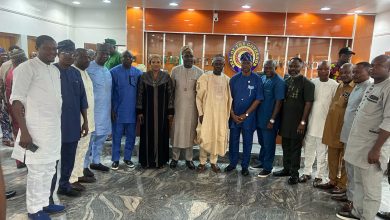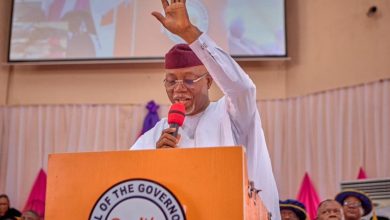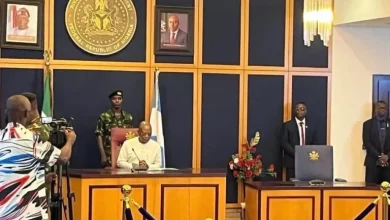Priorities Funding Of Statistical Surveys – World Bank to FG

The World Bank has asked the federal government to accord more importance to statistical data gathering by prioritising funding for research data for national development.
World Bank said data is too important to national development that the government should give it a front line charge in its priority list. Country director, World Bank, Nigeria, Mr. Shubham
Chaudhury made the call at a national sensitisation workshop for the Nigeria Labour Force Survey (NLFS) and National Living Standards Survey
(NLSS) 2022/2023.
“I would have been happy if the World Bank was not involved in the funding of these surveys having been part of the funding of the 2018/2019 NLSS. Our continued involvement in the funding of surveys such as this gives the impression that the country does not appreciate the value of data to push in more funding to it,” Chaudhury said.
He said he could not understand why the country is wasting so much
resources on fuel subsidy which does not benefit the ordinary Nigerian while neglecting critical areas such effective funding of the National Bureau of Statistics.
He praised the NBS for its consistency and for embarking on the surveys which he said will paint a clear picture of the level of the living standards in Nigeria and the employment status of the citizens.
In his speech, minister of state for Budget and National Planning, Prince Clem Agba said Nigerians should disregard the negative opinions that the present administration has thrown more people into poverty or has not made any effort to mitigate shocks arising from global challenges.
Prince Agba who was represented by Dr. Faniran Fanjor, director Social Development department in the ministry, said the gains made by this administration especially in education, health and general welfare of the people are being eroded by the global and local shocks caused by global pandemics, the Russian and Ukraine crisis, security challenges as well as climate change, with particular reference to flood and disasters in recent times.
According to him, “My advice, therefore is to focus more on the comparative analysis of economic developments in other countries to appreciate the efforts of the government of Nigeria. For example, in Ghana, Ethiopia and Uganda inflation was reported at 40.4 per cent, 31.1 percent and 31 percent respectively in the month of October 2022, while the inflation figure recorded in the UK was at its highest rate of 11.1 percent compared with the rate in 1981 which is 40 years after. With this high rate of inflation in these countries, it can be said that the negative effects of household consumption and poverty levels in those countries is high. This will tell us that Nigeria is progressive if you compare some of the statistics released by NBS with other countries across the globe.”
He said government will continue to support NBS in the performance of its statutory duties of churning out the right statistics that will aid policy formulation and tell the government where to focus attention.
In his welcome address, the statistician general of the Federation and chief executive of NBS, Prince Adeyemi Adeniran said the Nigeria Labour Force Survey (NLFS) is a strategic survey designed to collect and analyse labour market statistics for the country, including the generally understood and widely anticipated headline unemployment and underemployment rates. He said while the unemployment and underemployment rates are very important figures that indicate the number of persons economically engaged, the NLFS contains a lot more equally interesting and important information that offer useful insight into the health of the labour market in Nigeria.
He informed that the major change to this round of the NLSS is the use of newly carved out digital enumeration area maps from the National Population Commission, for the selection of Clusters and subsequent household listing, and the addition of new questions and modules on Remittances, Migration and Absentee Household members, Migration Aspiration, Social Cohesion, Petrol Subsidy, and Subjective wellbeing to the NLSS survey questionnaire.
“This round of the NLSS is a follow up to the one of 2018/2019, keeping pace with the expected 4–5-year frequency,” he said.
The enumerators for the NLFS and NLSS are already in the field working.
Leadership






